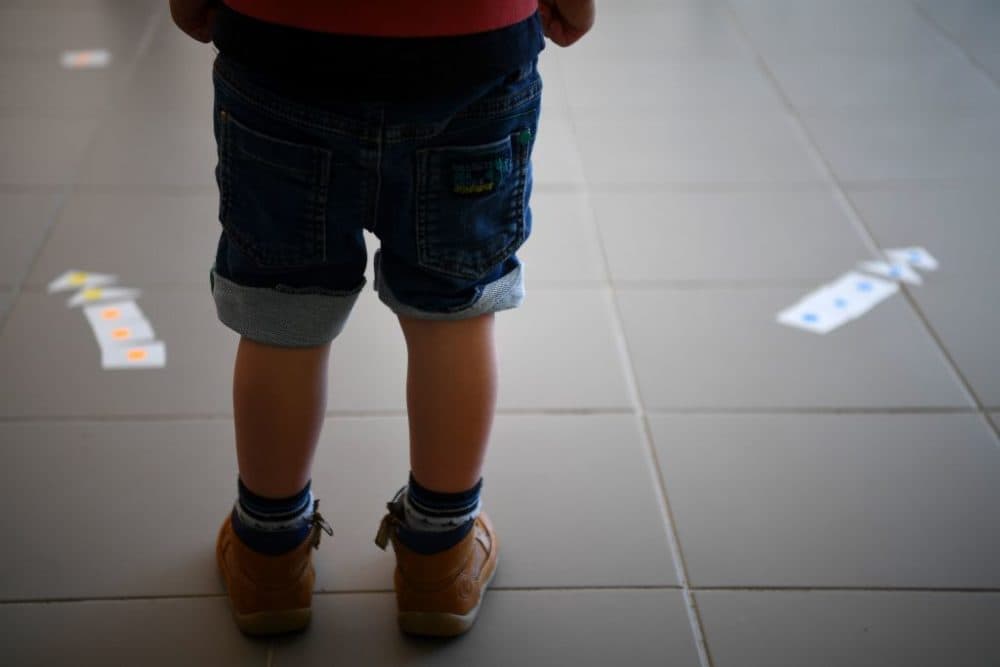Advertisement
Doctors Say Rare Disease Striking Children May Be Linked To Coronavirus

Doctors in the U.S. and abroad are reporting clusters of children hospitalized with a rare and serious inflammatory syndrome that shares features with Kawasaki disease.
In New York state, officials say at least one child has died and at least 64 children and teens have been hospitalized with what doctors are calling Pediatric Multi-System Inflammatory Syndrome. Doctors are reporting similar cases in other parts of the U.S. and around the world.
Infectious disease specialists say it's too early to say whether the illness is linked to COVID-19, but there is speculation the two are related.
Some of the kids who are exhibiting symptoms of Kawasaki disease — inflammation, fevers, rashes and damage to blood vessels — also tested positive for the coronavirus. Others tested positive for antibodies that show they were previously infected.
While their symptoms initially suggested Kawasaki disease, doctors were not completely sure, says Dr. Sunil Sood, an infectious disease specialist and chair of pediatrics at Northwell Health’s Southside Hospital in Bay Shore, New York, and practicing physician at Cohen Children's Hospital.
Last week, which was about one month since COVID-19 infections began to peak in New York and Long Island, about two dozen children came to the hospitals where Dr. Sood works with severe symptoms of Kawasaki disease, he says. Some were so sick that they had to be treated in the intensive care unit.
There are fewer than 20,000 cases of Kawasaki disease in the U.S. each year, and the disease typically infects children under the age of 5. But the majority of sick children Sood saw were older than 5 years old, and they didn’t have all of the symptoms of the disease, he says.
“The percentage of children who actually needed intensive care because of depressed functioning of the heart was much higher than we see in Kawasaki disease,” Sood says. “So that's made me think that this is actually a wider spectrum of disease occurring after the initial coronavirus infection.”
Data from the Centers for Disease Control and Prevention show that children are at relatively low risk from developing a severe coronavirus infection, and relatively few have been hospitalized during the outbreak.
Advertisement
Earlier this week, France’s health minister Olivier Véran said pediatricians and critical care physicians in the country are investigating possible links between this disease and COVID-19. Sood says he anticipates doctors will find a connection.
“Children have been quarantined at home since the middle of March since schools were closed, and we are really not seeing anything else going around,” he says. “So the usual other spring viral infections are all coming up negative in all these children.”
Doctors also tested these children for the coronavirus with the nasopharyngeal test method and found 95% were negative, Sood says. But when they employed a locally standardized antibody test, it showed they were positive.
“That means they fought off the COVID virus a few weeks ago,” he says.
Others have speculated the inflammatory response in these children could be the result of a cytokine storm, which is when the immune system essentially launches an all-out war on the coronavirus and causes severe damage to the lungs in the process.
While these children are presenting “elevated inflammatory markers in the blood,” it seems to be affecting other organs, such as the heart, skin, eyes, hands and feet, Sood says. Others have suffered fevers and “severe abdominal pain symptoms that actually mimic appendicitis.”
Although this is a severe manifestation of the disease, Sood is advising parents not to panic. Parents should take their child to the emergency room if they have “persistent high fever for more than two or three days” and any of the following symptoms: stomach pain, mental confusion, diarrhea, red eyes, rash or trouble breathing.
“Even if they don't think that they're being exposed to the [coronavirus], actually they probably already had [it],” Sood says.
Bringing children to the emergency room “could be lifesaving,” he says, “sometimes we do need to support the heart with some medications.”
Karyn Miller-Medzon produced and edited this interview for broadcast with Tinku Ray. Samantha Raphelson adapted it for the web.
This segment aired on May 8, 2020.

